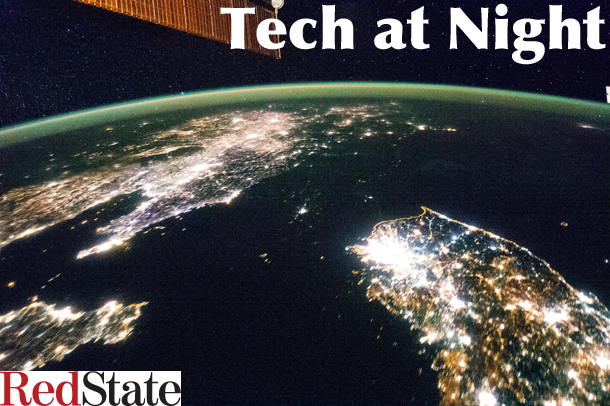
I’m back. CPAC week came and went. Then another week came and went after the horrible cold I got at CPAC. But now I’m healthy again and it’s time to start catching up. Though there’s no way I’m going to post on every tidbit I’ve run across in the last two weeks, I can try to hit the highlights.
And let’s start with the fact that the Internet Kill Switch is back under a new name. Susan Collins and Joe Lieberman have reintroduced the bill under a new name. They think if they put freedom in the name that we’ll ignore the problems inherent in giving the President emergency powers to wage economic war on America. The Internet Kill Switch is a broken idea. We don’t let the President close supermarkets nationwide if one butcher in one city has an e. coli outbreak. We can’t apply the same overreaction online.
Continue reading »

Once upon a time I used to be sleep at midnight. Of course, if I’d buckle down and get Tech at Night out the door a few hours earlier, then I’d be able to be asleep right now at midnight, I suppose. Regardless, here we go.
The FCC’s Net Neutrality vote is still on for the 21st, that is, Tuesday. Of course they’d miss the regular Tech at Night schedule after all of this. The FCC couldn’t make it easy on me, oh no. The good news though is that by now the storyline is that Republicans think the FCC is going too far, most Democrats are ready to move the heck on already, and radical Democrats think the FCC doesn’t go too far enough.
If the FCC were to try something radical, it’s clear the courts would have none of it, just as in Comcast v. FCC which started this whole mess. But that will take time and will scare off investment. Who benefits from an underinvested Internet? Nobody. So we’ve just got to push for the lightest possible touch from the FCC, but remind them that Fred Upton and company are waiting in case they try a fast one.
Continue reading »

Happy Weekend. As I write this it’s already the 11th, so you have two shopping weeks left before Christmas. Oops, is it still legal on the Internet not to say Holiday?
Some quick hits for the weekend as we continue to wait on the FCC to explain itself and its plans for radical new Internet regulation.
George Ou points out that if Netflix gets to demand free peering with Comcast, then Netflix ought to demand free shipping over the postal service. After all, if neutral means free, then that’s the next step, right? Just shows how absurd the radicals really are in all of this. Network investment costs money and that money must be recouped with profit, or else that investment isn’t going to happen.
And again, if that investment stops happening, we all lose out.
Continue reading »
There’s a lot of heat and unfortunately not enough light being produced online with respect to the recent decision by Comcast to cut off its free peering deal with Level 3, thanks to the throwing around of the name Netflix. People like Netflix and want to know what’s going on. I even have a Netflix streaming-only account. So I’ll try to explain here what’s going on, why it matters, and why we need to keep the government from intervening in favor of Level 3 and Netflix.
Firstly, I know what the question is that many will need answered: What is peering? To understand what peering is, we must first remember that the Internet is a series of networks. We all have our networks at our homes and businesses. Those networks connect to ISPs. Those ISPs then connect their networks to each other and to ‘backbone’ providers. Those backbone providers also connect to each other. The further along the chain we go, the more of the Internet’s functioning depends on those connections. Backbone providers would not have a useful service unless their networks gave access to the entire Internet.
So what the big boys do is create peering agreements with each other, where they agree to connect to each other for free, on the grounds that the data will travel both ways, benefit both sides, and create value for all involved. Firms have to be careful though to ensure that their peers are actually trading equally and fairly, creating benefit for all instead of just leeching. That is why ISPs make contracts that specify how the peerings work, and document their policies and practices of peering. Level 3 spells it out and so does Comcast.
So what happened that was the big deal?
Continue reading »
